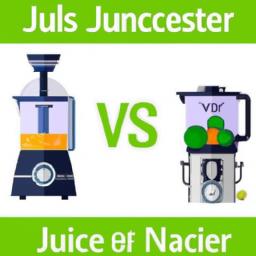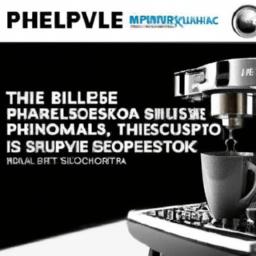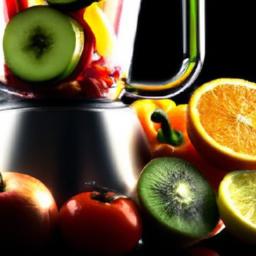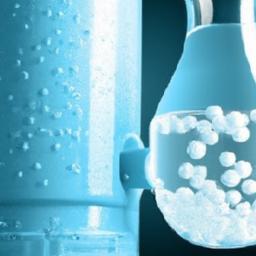Juice Extractors vs. Juicers: Selecting the Ideal Appliance for Fresh Homemade Juice
In the realm of transforming fresh produce into nutritious juice, the terms “juice extractor” and “juicer” are often used interchangeably. Yet, is there truly a difference? Understanding how these machines function can dramatically influence the quality of your beverage and your juicing experience.
Breaking Down the Basics: How Juice Machines Work
Juice extractors and juicers both serve to separate juice from fruits and vegetables, but their mechanisms differ substantially, affecting the outcome.
- Juice Extractors: These devices typically employ a slow, pressing or crushing technique-sometimes called masticating-to gently extract juice. This careful process helps retain more nutrients and results in smoother, clearer juice with minimal foam.
- Traditional Juicers: Often using high-speed spinning or centrifugal forces, these machines rapidly shred produce to produce juice. However, this speed can introduce more air, creating froth and less clarity in the final juice.
Performance Insights: What Each Appliance Excels At
| Feature | Juice Extractor | High-Speed Juicer |
|---|---|---|
| Optimal Ingredients | Leafy greens, fibrous veggies, soft fruits | Hard fruits, citrus, firm vegetables |
| Juice Quality | Velvety, nutrient-rich, less foam | Frothy, quicker extraction, less smooth |
| Noise Output | Quiet operation | Typically louder, buzzing motor |
| Cleaning Complexity | More components to clean-takes longer | Fewer parts, simpler cleanup |
| Countertop Space | Bulkier footprint | Compact design fits smaller areas |
| Cost Range | Higher price point | Generally more affordable |
Maintaining Your Machine: Ease of Cleaning and Upkeep
One of the biggest considerations for many users is cleaning time. Juice extractors often involve multiple intricate parts and fine mesh filters that require thorough rinsing to prevent pulp buildup. Contrastingly, fast spinning juicers tend to have fewer pieces and easier-to-clean components, ideal for those with busy mornings or less patience for scrubbing.
Sound and Space: Practical Considerations in Your Kitchen
For early risers or households sensitive to noise, juice extractors offer a quieter experience, operating with a soft hum. Juicers, by contrast, can be quite noisy, sounding similar to a blender on high speed. Additionally, compact designs of most juicers are perfect for tiny kitchens or condos, while juice extractors demand more counter real estate.
Financial Factors: Budgeting Your Juice Journey
Investing in a juicer depends on your priorities. Cold-press juice extractors, often costing upwards of $200-$300, deliver nutrient-packed juice and higher yield. Conversely, standard juicers may cost less than $100 yet still perform well for everyday citrus and hard fruit juicing. The choice hinges on balancing cost against desired quality and longevity.
Frequently Asked Questions About Juice Extractors and Juicers
Q: What distinguishes a juice extractor from a juicer?
A: The term “juicer” covers a variety of devices designed to extract juice. Juice extractors specifically refer to machines that gently press or crush produce, minimizing heat and oxidation, which preserves nutrients better than high-speed juicers.
Q: Which appliance produces juice more rapidly?
A: High-speed juicers typically extract juice faster, but quicker doesn’t always mean better. Slower extraction can lead to higher quality and more nutrient-rich juice.
Q: Do juice extractors yield more juice than traditional juicers?
A: Generally, yes. Extractors press produce more thoroughly, resulting in drier pulp and greater juice output, which saves produce and reduces waste.
Q: Which is easier to clean?
A: Juicers usually have fewer parts and are simpler to disassemble, making them more convenient for quick cleanup.
Q: Are juice extractors better at handling leafy greens?
A: Absolutely. Masticating extractors excel in juicing greens like kale and spinach, while centrifugal juicers may struggle with these fibrous ingredients.
Q: How does countertop space impact my choice?
A: Juicers are more compact and fit better in smaller kitchens. Juice extractors are bulkier and require more dedicated space.
Q: Which device offers better nutrient retention?
A: Slow-press juice extractors are superior in preserving vitamins and enzymes due to their gentle extraction process that limits heat and oxidation.
Selecting the Right Juicing Partner for Your Lifestyle
Your juicing habits should guide your choice. If you prioritize nutrient density, superior juice quality, and enjoy diverse produce including leafy greens, investing in a cold-press juice extractor is worthwhile. On the other hand, if budget constraints or quick juice prep are paramount, a centrifugal juicer fits better.
Consider your kitchen space, sound tolerance, and willingness to clean when making a decision. Personal preferences in juice texture-whether smooth or pulpy-also matter.
Wrap-Up: Making an Informed Juicing Choice
Both juice extractors and juicers have distinct advantages that cater to different juicing needs. To summarize:
| Attribute | Juice Extractor | Juicer |
|---|---|---|
| Juice Consistency | Clear, smooth, nutrient-rich | Thicker, frothy, with more pulp |
| Preparation Time | May require peeling/chopping | Often allows whole fruit input |
| Cleaning Duration | Typically longer | Usually quick |
| Yield Efficiency | Higher output | Lower output |
At the end of the day, the “best” machine fits your unique juicing goals and daily routine. Whether you lean toward a slow-press extractor or a speedy juicer, fresh juice will always be a healthful addition to your diet.
Feeling inspired? Time to upgrade your kitchen with the juicer that complements your lifestyle and start enjoying delicious, homemade juice every day!





